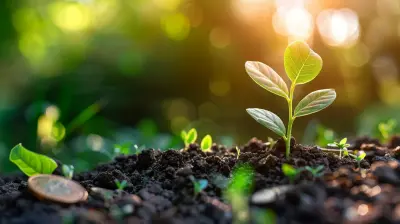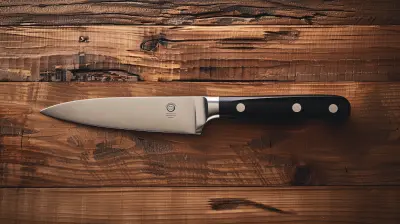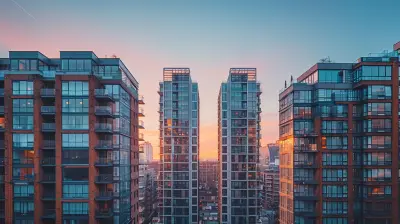The Rise of Tiny Homes with Big Green Features
11 August 2025
The tiny home movement has taken the world by storm, proving that bigger isn't always better. With skyrocketing housing costs and growing concerns about environmental sustainability, more people are ditching oversized houses in favor of compact, eco-friendly living spaces. But what’s fueling this trend? And why are tiny homes packed with big green features becoming the ultimate housing solution for modern, conscious living? Let’s dive in.
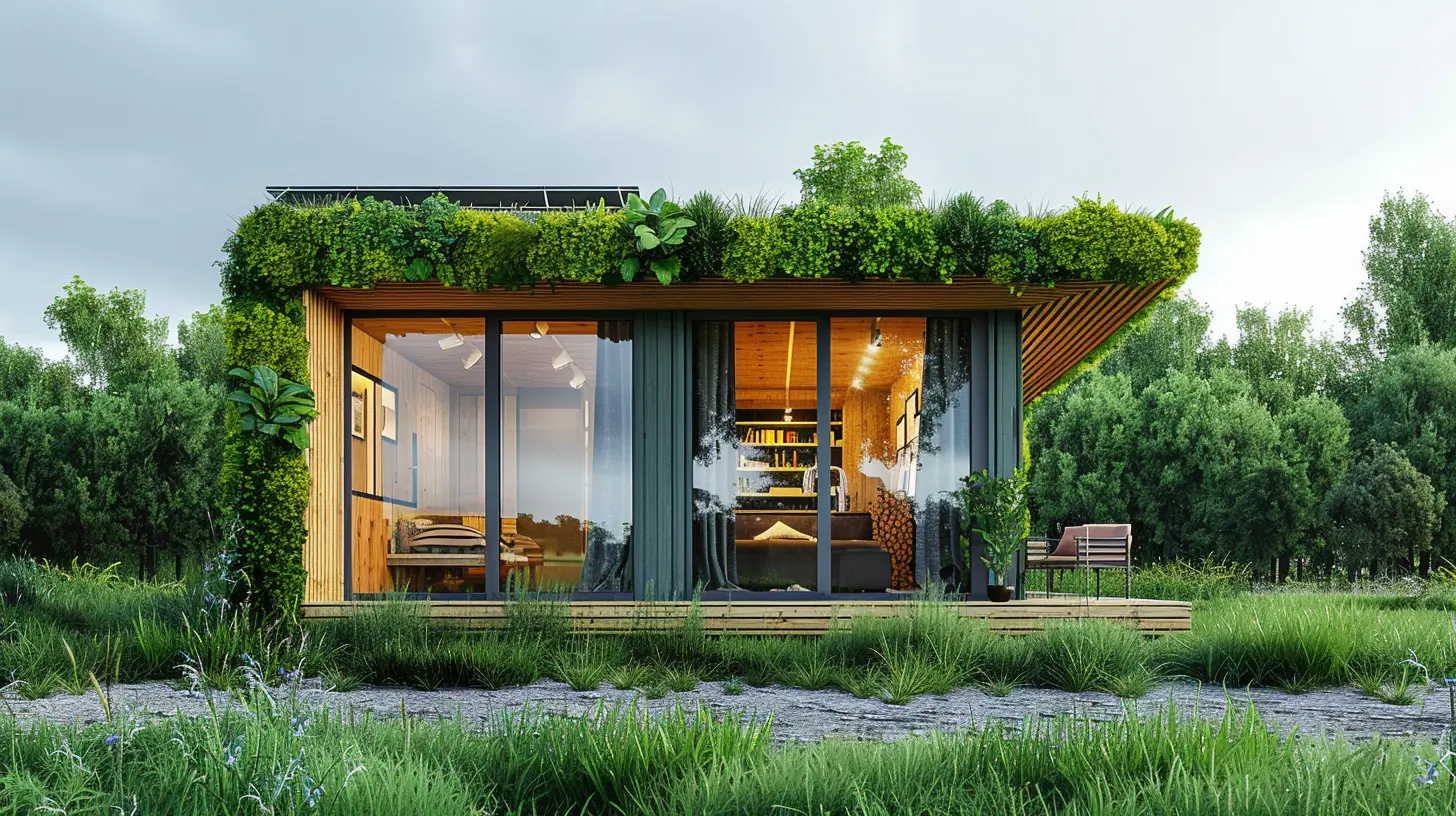
Why Are People Choosing Tiny Homes?
1. Affordability
Buying a traditional house in today’s market feels like an impossible dream for many. With home prices soaring, mortgages becoming a lifetime burden, and daily living costs rising, people are looking for financially smarter alternatives. Tiny homes provide an affordable solution—less space means fewer materials, lower costs, and reduced maintenance.2. Minimalist Lifestyle
Ever feel like you have too much stuff? Living in a tiny home forces you to embrace minimalism. You only keep what truly matters, decluttering both your home and your life. It’s a liberating shift that many find incredibly freeing.3. Lower Carbon Footprint
Traditional homes consume a ton of resources—not just when they’re built, but throughout their lifespan. Tiny homes, on the other hand, require fewer materials, use less energy, and encourage sustainable living. Less house, more nature—what’s not to love?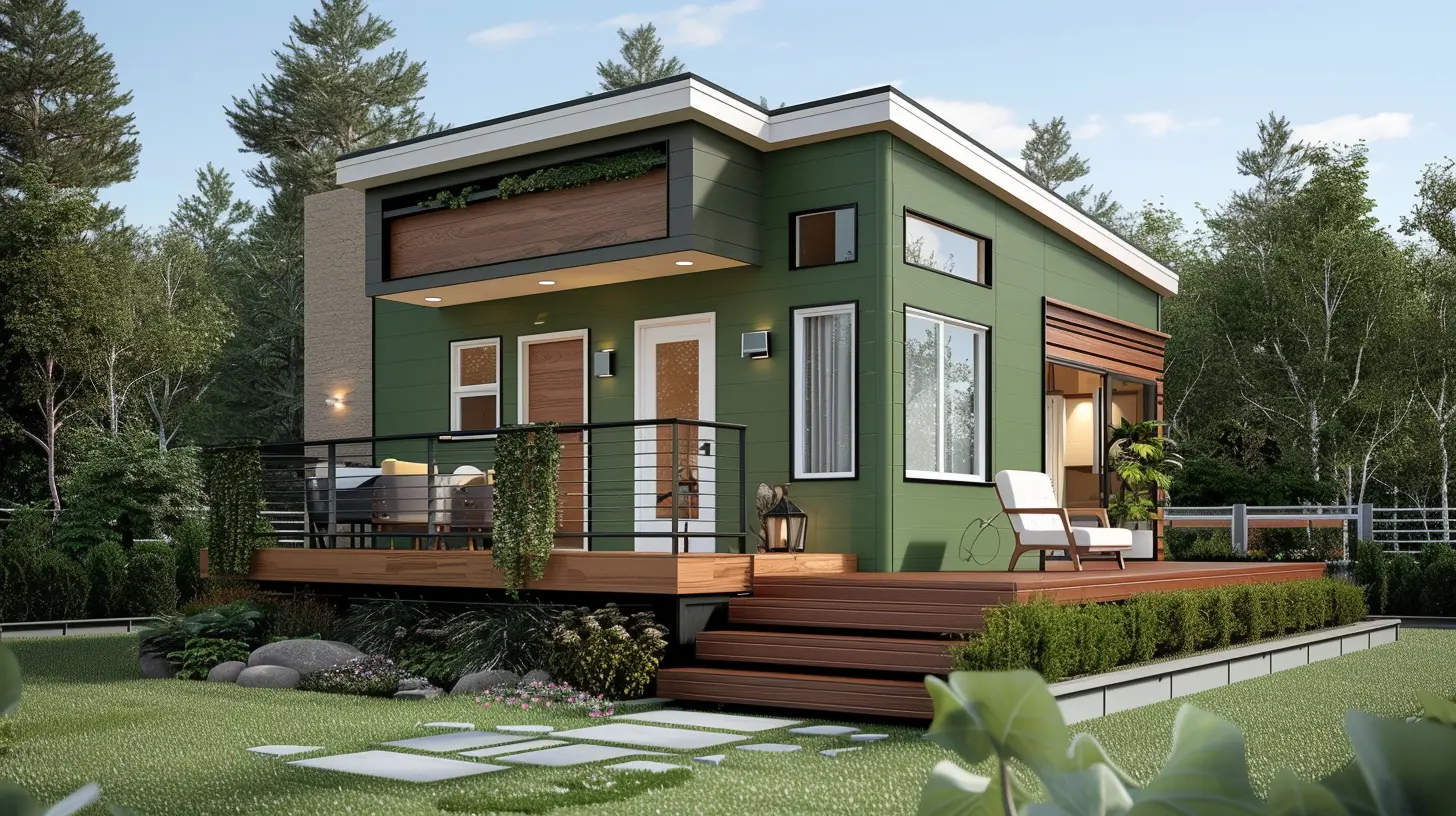
Big Green Features of Tiny Homes
As people seek greener ways to live, tiny homes have become an innovation hub for sustainability. These small yet mighty spaces are packed with eco-friendly features that make them a top choice for environmentally-conscious homeowners.1. Solar Power for Energy Independence
Many tiny homes are designed with solar panels, allowing homeowners to generate their own electricity. Even a small setup can power basic appliances, reducing dependency on fossil fuels. Some owners even go completely off-grid, making their homes self-sufficient and energy-efficient.2. Rainwater Collection and Filtration
Water conservation is a big deal, and tiny homes take it seriously. Many are equipped with rainwater harvesting systems that collect and purify rainwater for daily use. Whether for drinking, cooking, or gardening, this feature helps reduce water waste while promoting sustainability.3. Compostable Toilets
Ever heard of a composting toilet? Traditional flush toilets use gallons of clean water with each flush. Composting alternatives turn waste into usable compost, eliminating water waste while creating a natural way to fertilize soil.4. High-Efficiency Insulation and Passive Heating
Keeping a home warm or cool requires energy, but tiny homes use smart design to maintain comfortable temperatures. With high-quality insulation, energy-efficient windows, and passive heating techniques, they stay cozy without consuming tons of electricity.5. Reclaimed and Recycled Building Materials
Sustainability starts with construction. Many tiny homes are built using reclaimed wood, recycled metal, and even repurposed shipping containers. This not only reduces waste but also gives each home a unique, rustic charm.6. Green Roofs and Vertical Gardens
To maximize greenery in tiny spaces, homeowners are turning to green roofs and vertical gardens. These living walls provide fresh air, regulate interior temperatures, and even produce food, proving that sustainability can be stylish too.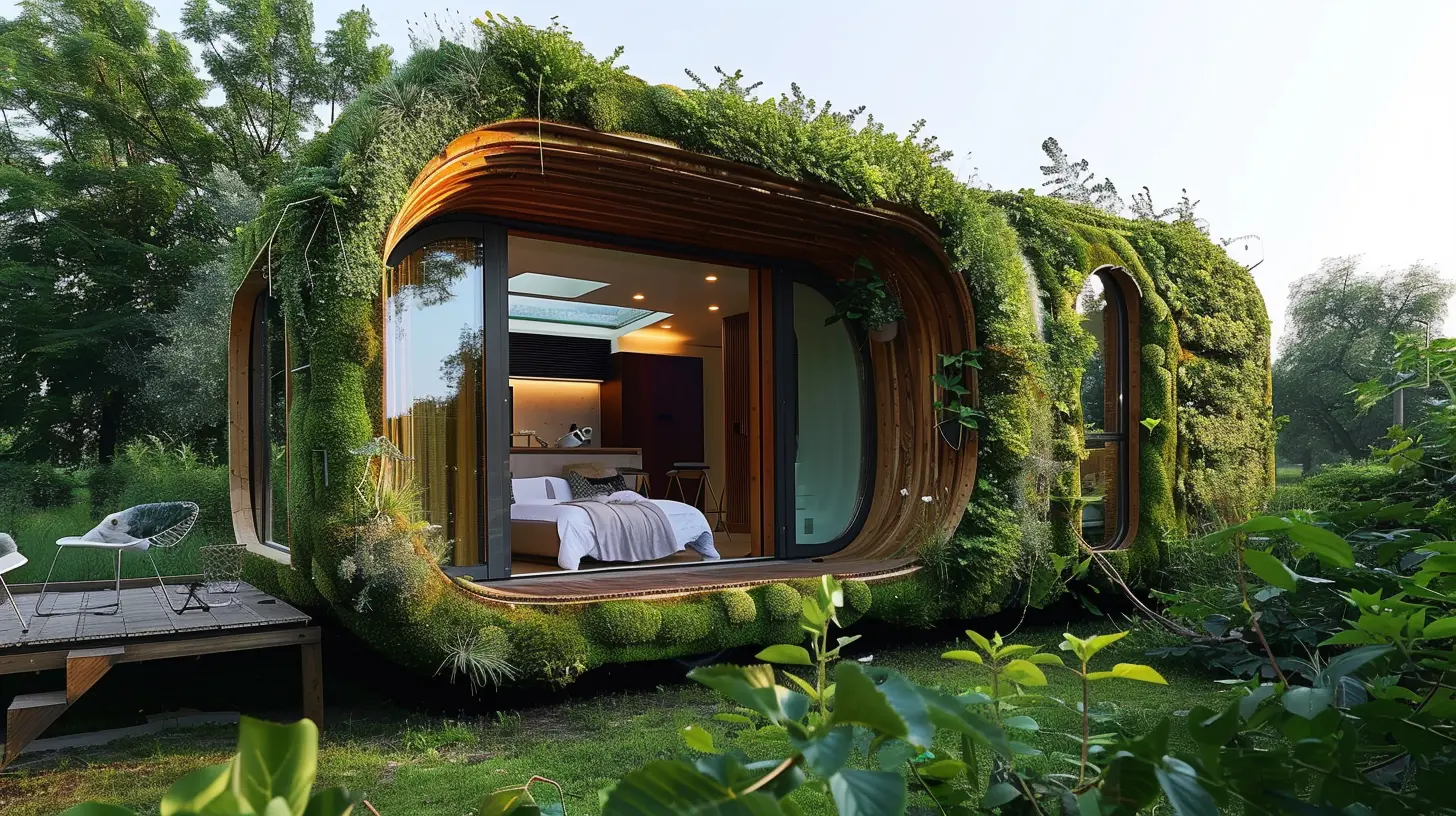
The Financial and Environmental Perks
1. Lower Utility Bills
Living tiny means spending tiny—especially when it comes to utilities. With solar power, energy-efficient appliances, and smaller spaces to heat and cool, monthly bills shrink dramatically. Who wouldn’t love that?2. Less Waste, Less Impact
A smaller home naturally means less consumption. Fewer materials go into construction, and day-to-day energy usage is cut down. This lifestyle is a direct answer to excessive consumerism and environmental degradation.3. Freedom to Travel and Live Off-Grid
Many tiny homes are built on wheels, giving homeowners the ability to move anywhere while maintaining a sustainable lifestyle. Whether it’s a forest retreat, a beachside getaway, or a mountainside escape, the possibilities are endless.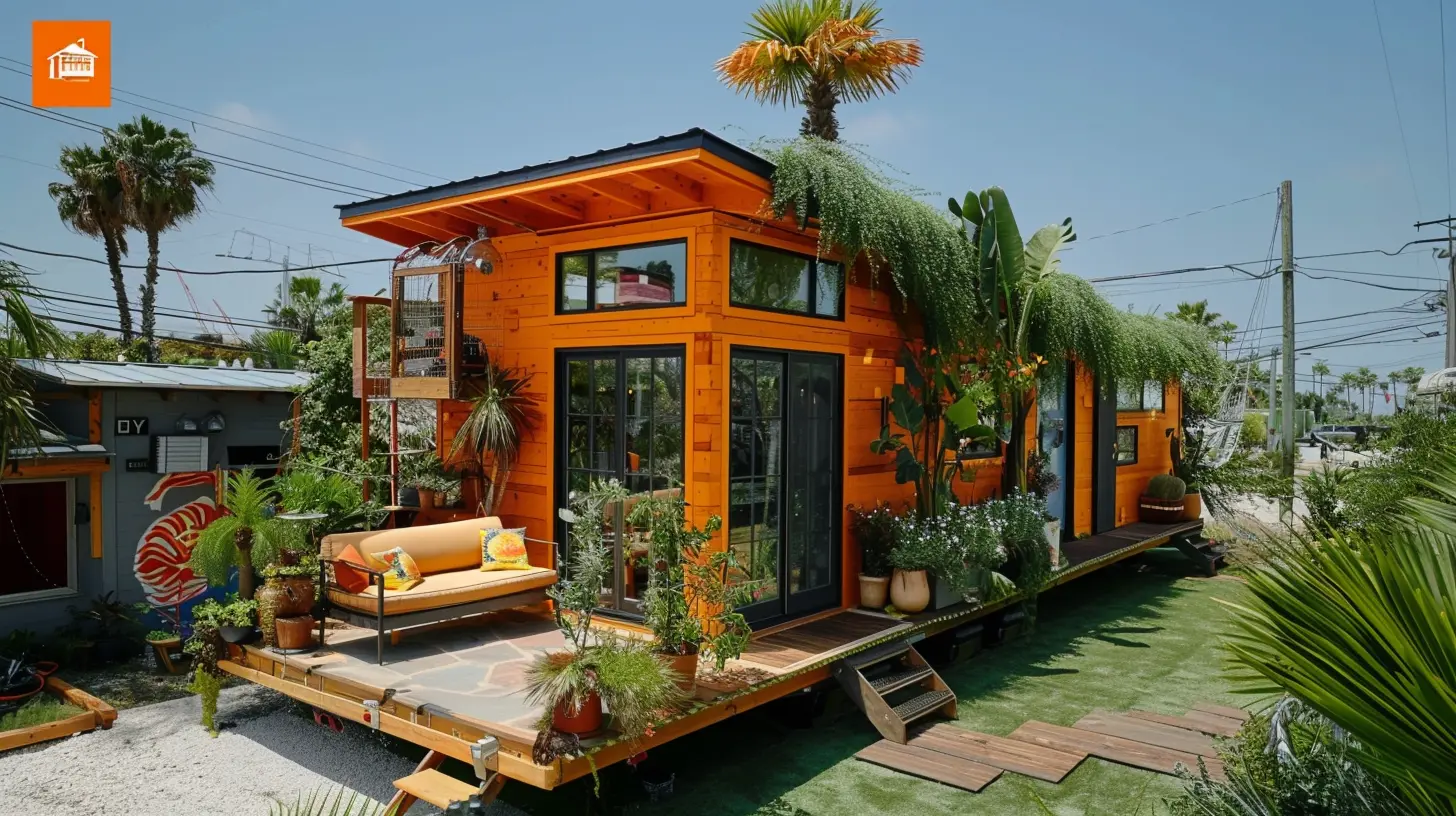
Challenges of Tiny, Green Living
Of course, tiny home living isn’t for everyone. Here are some common challenges people face when downsizing to an eco-friendly mini home:1. Zoning and Legal Restrictions
Many areas don’t have clear regulations for tiny homes, making it difficult to find legal spots to park and live full-time. Cities are slowly adapting, but there’s still a long way to go.2. Limited Space and Storage
Let’s be honest—living tiny requires sacrifices. Storage is minimal, so if you’re someone who loves to hoard, you might struggle with the adjustment.3. Financing Can Be Tricky
Traditional mortgages don’t always apply to tiny homes, meaning buyers often have to rely on personal loans or savings. While they’re more affordable overall, the upfront cost can still be a hurdle.Is a Tiny Home with Big Green Features Right for You?
If you’re looking for an affordable, sustainable, and flexible living option, a tiny home might be your perfect match. It’s a lifestyle shift, but one that comes with incredible rewards—lower costs, reduced environmental impact, and a newfound appreciation for simple, intentional living.So, are you ready to embrace the tiny home movement? Whether you’re dreaming of an off-grid cabin or a sleek, modern micro-home, the future of sustainable housing is looking smaller—and greener—than ever.
all images in this post were generated using AI tools
Category:
Green HomesAuthor:

Lydia Hodge
Discussion
rate this article
1 comments
Nicholas McGillivray
Tiny homes are not just a trend; they represent a profound shift towards sustainable living. With their innovative green features, these compact dwellings prove that you can live large while minimizing your environmental footprint. Embrace the future of housing—smaller, smarter, and more eco-friendly than ever!
August 18, 2025 at 2:36 AM

Lydia Hodge
Thank you for your insightful comment! Indeed, tiny homes exemplify a transformative approach to sustainable living, showcasing how efficiency and eco-friendliness can redefine our housing landscape.
